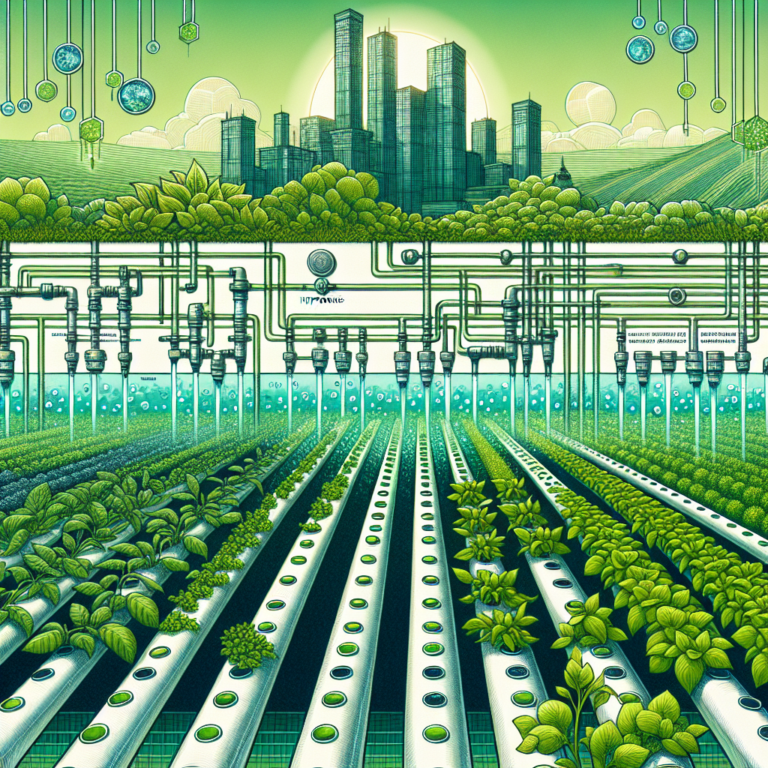As the global population continues to grow at an unprecedented rate, the demand for food also increases. Traditional agricultural methods are struggling to keep up with this demand, leading to concerns about food security and sustainability. In this context, hydroponic crop systems have emerged as a promising solution to address these challenges.
Hydroponics is a method of growing plants without soil, using nutrient-rich water solutions instead. This enables crops to be grown in controlled environments, such as greenhouses or vertical farms, where factors like temperature, humidity, and lighting can be optimized for maximum growth. In addition, the water used in hydroponic systems is recirculated, reducing water usage by up to 90% compared to traditional soil-based agriculture.
One of the key advantages of hydroponic crop systems is their ability to produce higher yields in less space compared to traditional farming methods. With the world’s population projected to reach 9.7 billion by 2050, maximizing crop production on limited land resources is critical. Hydroponic systems can be set up in urban areas, allowing for fresh produce to be grown and harvested year-round, regardless of the weather conditions outside.
Furthermore, hydroponic crop systems offer greater control over the growing environment, resulting in healthier and more nutritious produce. By providing plants with precisely what they need to thrive, growers can eliminate the need for pesticides and herbicides, reducing the risk of contamination and increasing the safety of the food supply.
Another benefit of hydroponic crop systems is their resilience to climate change and extreme weather events. By growing crops indoors, growers can protect their plants from drought, floods, and other environmental challenges that can devastate traditional crops. This not only ensures a stable food supply but also reduces the reliance on fossil fuels for transportation and refrigeration.
In conclusion, hydroponic crop systems have the potential to revolutionize the way we grow food and feed a growing population. By offering higher yields, greater efficiency, and a more sustainable approach to agriculture, hydroponics can help address the challenges of food security and climate change facing the world today. As we look towards the future, investing in hydroponic crop systems may be the key to ensuring a stable and secure food supply for generations to come.
